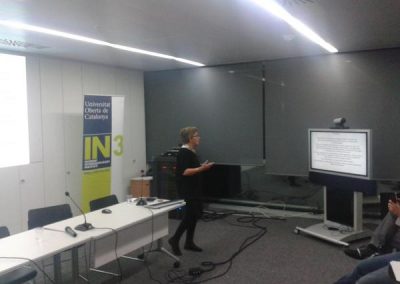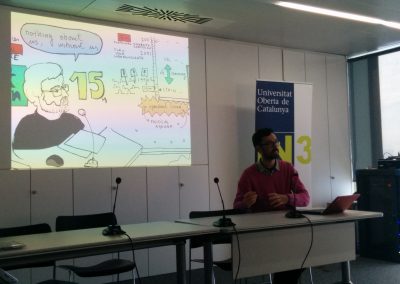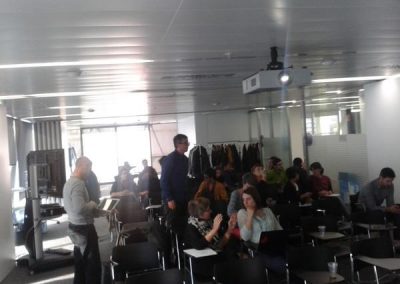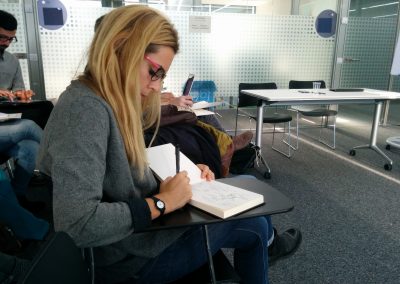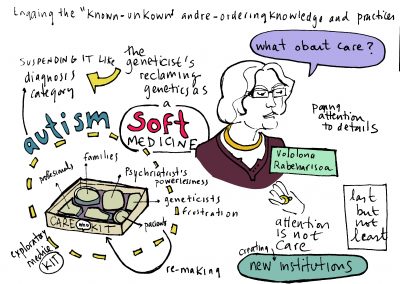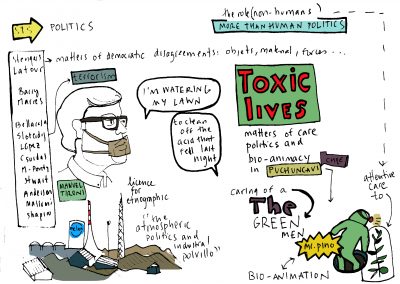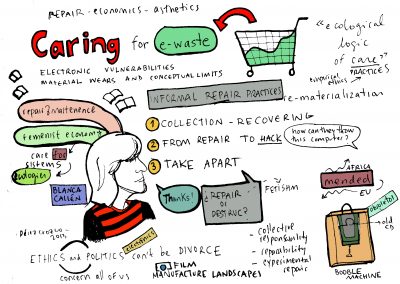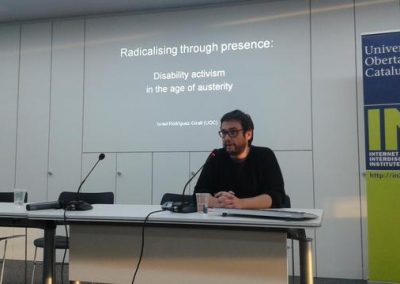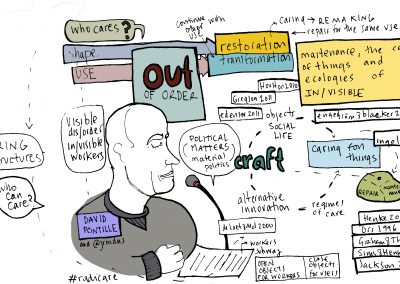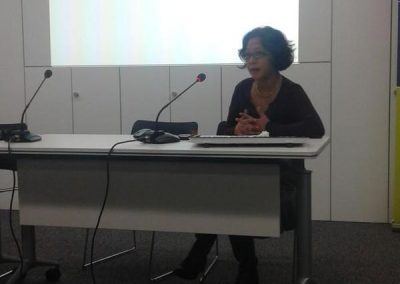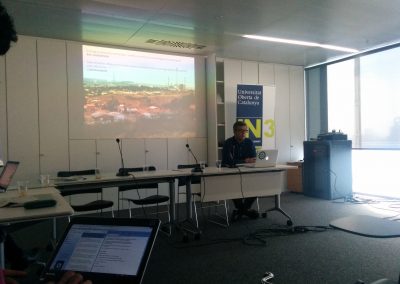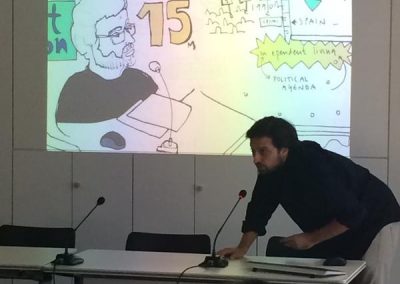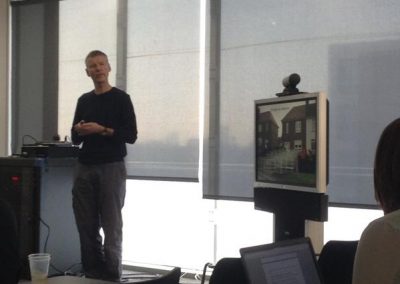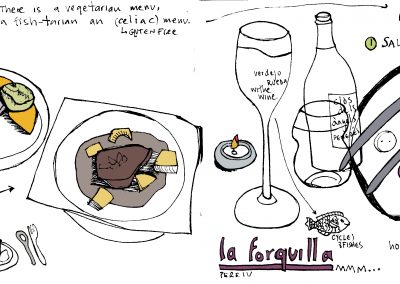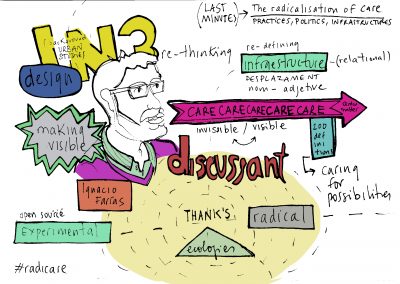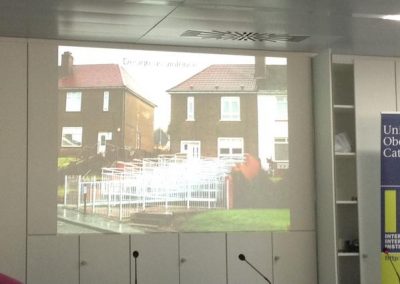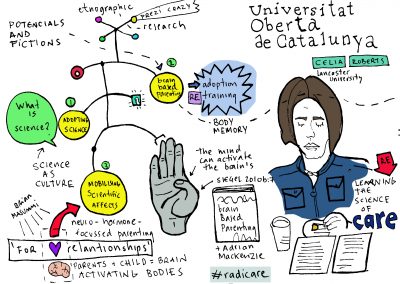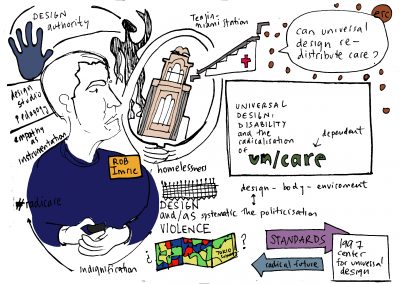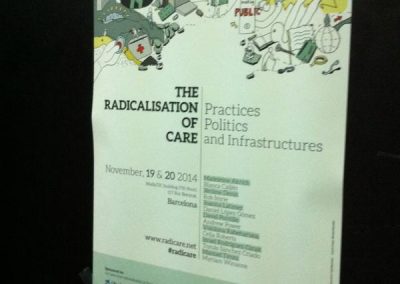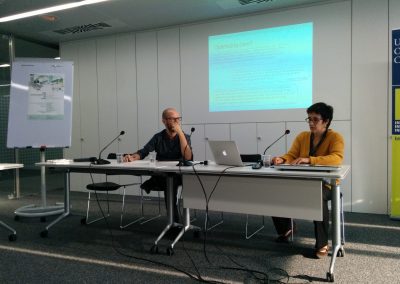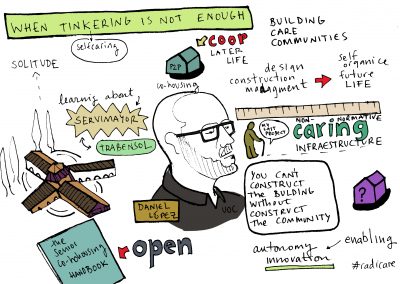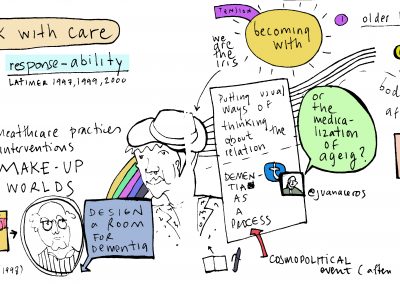The Radicalisation of Care: Practices, Politics and Infrastructures
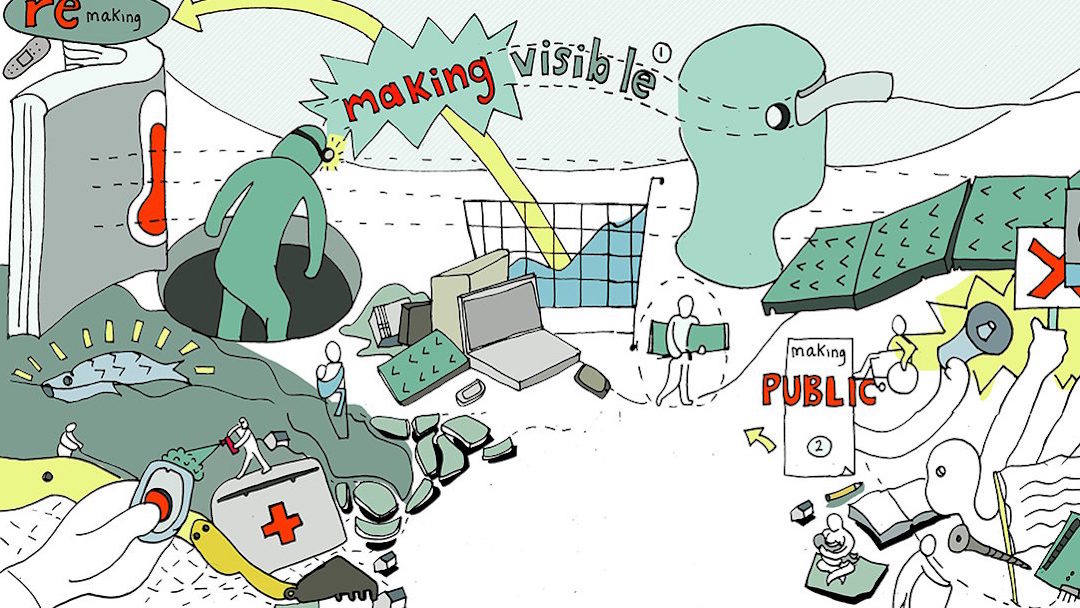
CONFIRM YOUR PARTICIPATION
The concept of radicalisation is usually associated to a process by which groups or individuals come to adopt increasingly extreme or immoderate positions, ideals or aspirations. But it also speaks of the attempts at introducing fundamental or far-reaching changes in a certain area or field. Drawing on this second meaning, in this workshop we aim to explore a series of trends that lead us to think that we might be facing a process of radicalisation of care.
Speakers and contributions:
- Madeleine Akrich (Centre de sociologie de l’innovation, Mines Paristech): «The Birth Plan: A « catch me if you can » radicalisation?»
- Blanca Callén: «Caring for e-waste: Electronic vulnerabilities, material wears and conceptual limits»
- Jérôme Denis & David Pontille (Centre de sociologie de l’innovation, Mines Paristech): «Maintenance, the Care of Things and the Ecologies of In/visible»
- Rob Imrie, Charlotte Bates & Kim Kullman (Goldsmiths College, London): «Universal design, disability and the radicalisation of un/care»
- Joanna Latimer (Cardiff University): «Dwelling with dementia: body-world relations, participation and care»
- Daniel López (Universitat Oberta de Catalunya): «When tinkering is not enough: senior housing coops as infrastructures for self-organising later life»
- Andrew Power (University of Southampton): «Self-Building Safe Havens in a Post-service Landscape: How adults with learning disabilities are reclaiming the welcoming communities agenda»
- Vololona Rabeharisoa (Centre de sociologie de l’innovation, Mines Paristech): «Who cares? Combining genetics and psychiatry to explore the shadow zones of autism»
- Celia Roberts & Adrian Mackenzie (Lancaster University): «Brain-based parenting: learning the science of care»
- Israel Rodríguez-Giralt (Universitat Oberta de Catalunya): «Radicalising through presence: disability activisms in the age of austerity»
- Tomás Sánchez Criado (Universitat Oberta de Catalunya): «Care in the (critical) making: Open prototypes or the radicalisation of independent-living»
- Manuel Tironi (Pontificia Universidad Católica de Chile): «Toxic lives: matters of care, politics and bio-animacy in Puchuncaví»
- Myriam Winance (Inserm, Cermes3, France): «From ‘Rare disabilities’ to ‘rare care’. Some preliminary analysis of the history of the French category ‘rare disabilities’»
Lugar
Barcelona Growth Centre (former MediaTIC building)
Roc Boronat, 39-43
Barcelona
08035 Barcelona
Cuándo
19/11/2014 12.30h
Organiza
Universitat Oberta de Catalunya, Grupo de investigación CareNet del IN3
Contacto



